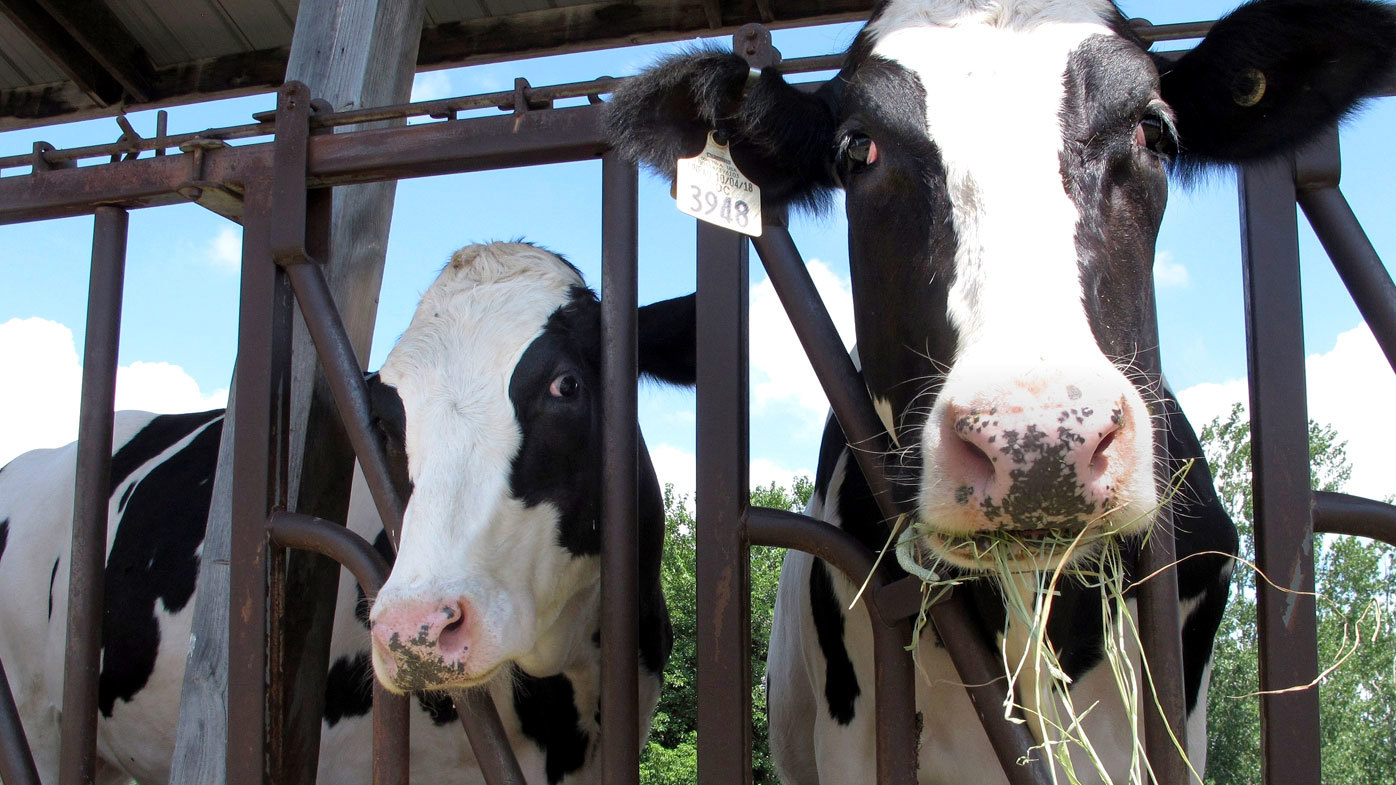Unless humans rapidly change mass food production systems, including eating less beef and dairy, emissions from the sector could add nearly 1 degree to global temperatures by 2100, a study has warned.
If that modelling is accurate, the 1.5 degrees target in the Paris Agreement which called for countries to take concerted action to reduce greenhouse gas emissions is in peril.
Global food consumption alone could boost warming by almost 1 degree by the end of this century, researchers from Columbia University in the US said.
READ MORE: Is Australia headed for recession? Possibly - as interest rates rise

The researchers found that methane, a chief culprit in the climate change debate, accounted for nearly 60 per cent of warming associated with the food system.
Carbon dioxide and nitrous oxide made up around 20 per cent each.
The peer-reviewed study, published today in Nature Climate Change, showed 75 per cent of warming is driven by meat, dairy and rice - foods with high sources of methane.
Researchers claimed improving production practices of those foods could avoid nearly a quarter of the predicted warming by 2100.
And over 55 per cent of anticipated warming can be avoided from simultaneous improvements to production practices, researchers said, largely reducing dietary protein content in some countries, such as the US and Spain.
The study said a medically recommended diet across the globe could help counter imbalances, along with cutting waste by consumers and retailers.
Recent rises in annual methane emissions are gathering pace.
READ MORE: Australia 'facing threat of war with China within three years'
About 40 per cent of human-caused methane emissions come from leaks from fossil fuel exploration, production and transport, according to UN data.
A 2022 UN report investigating global methane showed those leaks rose by almost 50 per cent between 2000 and 2019.
Another 40 per cent of methane comes from agriculture, dominated by burping cattle.
This year is already forecast to be hotter than 2022, which global datasets ranked as the fifth or sixth hottest year on record.
Sign up here to receive our daily newsletters and breaking news alerts, sent straight to your inbox.
